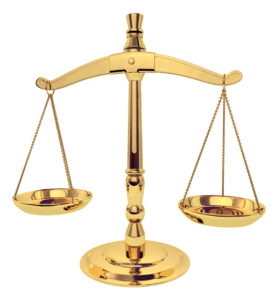Practicing Law Without A License
July 20, 2018

The Supreme Court’s orders come on the heels of three highly detailed reports from the Rhode Island Supreme Court Unauthorized Practice of Law Committee on whether the tasks at a real estate closing are legal work that require lawyers. In the first case, In re SouthCoast Title and Escrow, Inc., the Committee concluded that a title company engaged in unauthorized practice of law by hiring an attorney to conduct title examinations and closings but not organizing itself in a corporate form authorized for law firms. Next, in In re Daniel S. Balkun and Balkun Title & Closing, Inc., the Committee found that non-lawyers performed legal tasks that require a law license, reasoning that the practice of law includes title examinations, conducting a real estate closing, drafting deeds, drafting residency affidavits, and drafting a power of attorney.
Finally, in In re William E. Paplauskas, Jr., the Committee found that a notary engaged in unauthorized practice of law by explaining the substance of legal documents during a real estate closing. The Committee also recommended a finding that notarizing documents is not in itself the practice of law, but that “conducting a real estate closing” constitutes the practice of law and must be handled by an attorney. Two Committee members dissented in Paplauskas, disagreed with the conclusion that the notary practiced law, and explained that the Committee majority is “spring-boarding this Court, purposefully or otherwise, into a long-raging turf war between lawyers (bar associations, unauthorized practice of law committees) and non-lawyer real estate professionals (title companies, realtors) without the benefit of either a full-scale review of industry practices, consumer rights, or actual harm to the public, or input from the various stakeholders whose perspectives are incredibly relevant to this well known, heated debate.”
The Unauthorized Practice of Law Committee’s findings are recommendations to the Rhode Island Supreme Court and do not carry the force of law. The Rhode Island Supreme Court will have the final say. In response to the Committee’s recommendations, the Supreme Court issued orders in each of the three cases (here, here, and here) assigning them for oral argument and inviting any interested party to file a so-called amicus brief — also known as a “friend of the court brief” that any person with an interest in the litigation can file to bring issues to the court’s attention.
So what is the practice of law? According to the Unauthorized Practice of Law Committee’s decisions, the Rhode Island Supreme Court has recognized that the “practice of law at a given time cannot be easily defined,” Unauthorized Practice of Law Comm. v. State, Dep’t of Workers’ Comp., 543 A.2d 662, 664 (R.I. 1988). The Supreme Court alone has “the ultimate and exclusive authority to determine what does and does not constitute the practice of law within the state and to regulate those people qualified to engage in the practice.” In re Town of Little Compton, 37 A.3d 85, 88 (R.I. 2012). In the Committee’s view, the Supreme Court’s prerogative is so strong that while the Legislature can “declare acts of unauthorized practice illegal . . . the Legislature cannot unilaterally declare that certain conduct does not constitute the practice of law and it cannot authorize attorneys to practice law in contravention of Supreme Court Rules.”
In other words, the practice of law is what the Rhode Island Supreme Court says it is. The Legislature, for criminal law purposes, has defined the practice of law in R.I Gen. Laws 11-27-2 as “including” the following:

• The Appearance or acting as the attorney before any court or similar body to determine any question of law or fact or to exercise any judicial power;
• The preparation of pleadings or other legal papers incident to any action or other proceeding of any kind before or to be brought before the court or other body;
• The giving or tendering to another person for a consideration, direct or indirect, of any advice or counsel pertaining to a law question or a court action orjudicial proceeding brought or to be brought;
• The undertaking or acting as a representative or on behalf of another person to commence, settle, compromise, adjust, or dispose of any civil or criminal case or cause of action;
• Preparation or drafting for another person of a will, codicil, corporation organization, amendment, or qualification papers, or any instrument which requires legal knowledge and capacity and is usually prepared by attorneys at law.
Since unauthorized practice of law carries criminal consequences, it is problematic that current Rhode Island precedent holds that practicing law cannot be easily defined. In other contexts, courts have struck down statutes as void for vagueness when they criminalize undefined behavior. The three upcoming cases on real estate closings are an excellent opportunity for the Rhode Island Supreme Court to more clearly define what is and what is not the practice of law.
The importance of good standing was in the news earlier this month after the revelation that at least three Rhode Island state agency attorneys were not members in good standing of the bar. Now, the Rhode Island Supreme Court has entered the fray by issuing a remarkable set of orders to address whether tasks performed in conjunction with real estate closings in Rhode Island constitute practicing law and therefore must be performed by attorneys. The issue is very significant based on the sheer number of real estate closings (the transfer of land ownership from one to another, usually with a loan and a mortgage) that happen every year.

